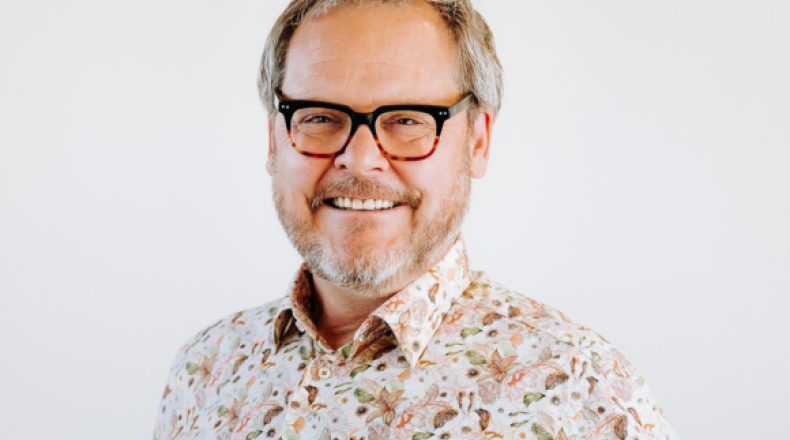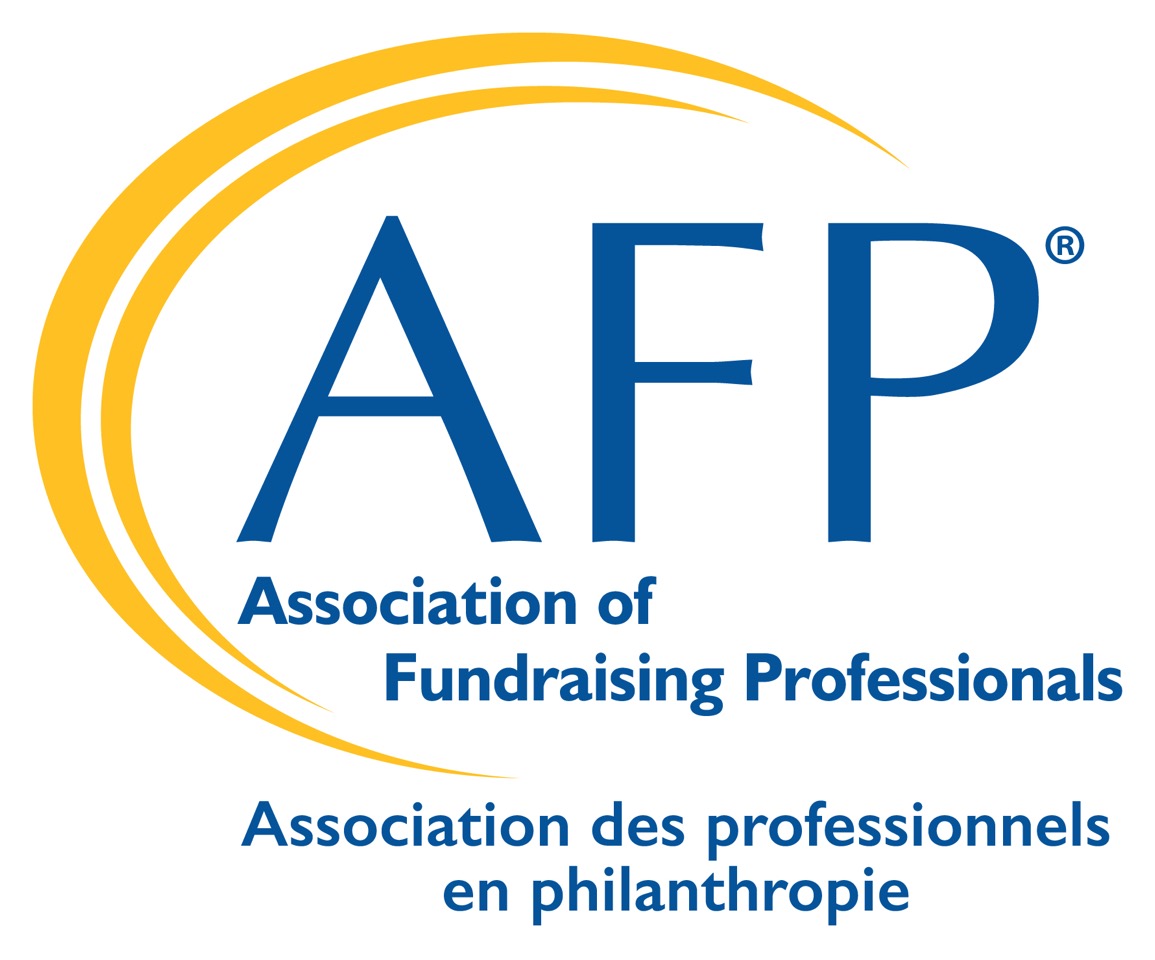Vincent Duckworth: Reflections as outgoing chair of the AFP Foundation for Philanthropy – Canada

‘‘I still have much to learn.’
Vincent Duckworth has served as the chair of the board of the AFP Foundation for Philanthropy – Canada since January 2023. As his term comes to an end, he provides heartfelt and personal reflections on his tenure, where the board dealt with significant racism issues globally that resulted in the IDEAA (Inclusion, Diversity, Equity, Access and Anti-Racism) audit, and instituted important changes to the board structure in direct response to these issues. Duckworth has been a leader in the nonprofit sector for more than three decades and is an expert on campaign design, strategy, and major gift performance. He is also Canada’s authority on philanthropic naming, which he wrote about in Excellence in Fundraising in Canada: Volume Two.
Q: What were your goals when you set out at the beginning of your term? Do you feel you’ve achieved them?
A: Looking back on my stated goals before I took on the role, I had three: to update the Foundation’s case for support, to raise more money, and to help increase diversity, equity, access and inclusion on our board. As part of our orientation to our new roles, all four new AFP chairs (AFP Global, AFP U.S. Foundation for Philanthropy, AFP Canada and AFP Foundation for Philanthropy – Canada) typically attend the AFP Global board meeting in December, just before they officially take on their roles in January. For me, this meeting was where we first learned of the anti-Black racism incidents in Chicago (with the Fundraiser Bill of Rights) and in Toronto (with the AFP Greater Toronto chapter). Hearing of these incidents and knowing the systemic racism underlying them was very troubling, yet I didn't understand then how much of an impact they would have on my work with the Foundation. In fact, they defined my role as chair. My board quickly understood how wide-reaching these issues were and demanded that we, collectively, play a role in repairing the harm and then, set a course for continued and real work in the IDEAA space. Setting out on my term, I felt that if we were to accomplish increasing diversity on the board, it would make a real difference in how we were approaching our commitment to IDEAA. How wrong I was. It was a big lesson.
Q: Being the head of a national organization is a major achievement in anyone’s books. What did that feel like for you personally? What was the growth trajectory for you professionally in this role? Personally?
A: Leading the AFP Foundation has been a challenging, humbling and inspiring experience. When I was elected, I felt grateful towards my peers for delivering this responsibility and duty of care into my hands. I was also humbled by the tremendous work done by those who served before me. Over the last twenty-four months, my board has consistently challenged me and AFP to be better. At times, this was hard and, sometimes, unexpected. There were points where I felt like I was falling short in my role. Ultimately, it was these moments that spurred me to become a better leader and a better listener. Also in these moments, I was blessed to have fellow chairs, such as Jennifer Johnstone of AFP Canada, Missy Ryan Penland of the AFP USA Foundation and Birgit Smith Burton of AFP Global as well as Mike Geiger, AFP Global’s CEO. Together, we were in the foreground of AFP’s triumphs, challenges, celebrations, and missteps during our terms. I was consistently inspired, buoyed, and supported by their collective and individual leadership, care and thoughtfulness. Throughout my time with the Foundation, particularly as chair, I am grateful for the work and support of AFP staff members including Lori Gusdorf and Lisa Davey. Their commitment to our members, the boards they support, and the leaders they resource is one of the unsung stories of AFP. When I began my role as chair, I did not really know what it meant to be a servant leader. And I still have much to learn.
Q: Did equity issues change the way you viewed your job as chair of AFP Foundation for Philanthropy – Canada?
A: IDEA and, later, IDEAA (Inclusion, Diversity, Equity, Access, and Anti-Racism) was the defining characteristic of my tenure as chair of the Foundation. It formed a significant part of almost every board meeting, forcing me to step up in ways I never anticipated. It helped me understand that not only was I part of the problem, but I was also, uniquely and ironically, mostly due to privilege, in a position to work with my board to make real change. Throughout this time, I am especially grateful for my friendship with AFP Global Board Chair, Birgit Smith Burton. Birgit took my calls, answered my texts, and helped back-channel the hardest moments during this time. I will always remember Birgit’s turn of phrase when she wanted to encourage me to do something: “Vincent, would you consider…”. I could also single out many board members and members of our board executive who were there for me as well but I would risk missing one or more of them so I will just offer my group thanks to all who were there for me and all of us as members during this time.
Q: Is there something that stands out to you as a singular achievement, one that stays in your mind as you think about the last two years?
A: I am proud of the many things we were able to do over the last two years as the Foundation. Four accomplishments stand out. Firstly, at the urging of some of our board members, and with the support of our executive, in particular, chair-elect Amanda Fritz, CFRE, we made a change in our leadership structure by adding a co-chair role of someone with lived experience of inequity, and someone who would also be able to mitigate the capacity challenges inherent in leading in a complex world. I am proud that we were able to make the changes needed and to elect Muneeb Syed, CFRE, who will join Amanda in leading the AFP Foundation for Philanthropy - Canada in 2025 and 2026. Secondly, the change we made to our bylaws where we made space for board members who are not AFP members. Prior to this change, you needed to be a member of AFP to become a member of the board of the Foundation. With this change, 20% of our board roster can include individuals who are not AFP members. This is a significant barrier removal and one that is at the heart of inclusion.
Thirdly, the statement that the Foundation made in response to the AFP GTA chapter’s anti-Black racism incidents was vital and important. I first learned of these incidents in the latter part of 2022, but it was not until halfway through 2024 that we made a public statement as a board. Lastly, together with AFP Canada, we have embarked on an intensive IDEAA audit of AFP in Canada, the recommendations of which our board has committed, collectively and individually to putting into place within the Foundation. The work of this audit is underway, and the recommendations will be shared in early 2025.
Q: What do you think are the biggest issues facing fundraisers today?
A: In many ways, fundraising still suffers from the same thing it suffered from when I joined as a young fundraiser in 1994. A lack of respect. This lack of respect is not malicious, but it is pervasive, and it is pernicious. Fundraisers and fundraising are still seen by many Canadians as something unsavoury but reluctantly necessary. This plays out in the public discourse (“…get the volunteers to ask for money…”), it plays out in media (“…another highly paid fundraiser misusing charity funds…”), and it plays out with many of our organizational leaders (“…no, I don’t think we need the fundraiser in the strategy session…”). AFP Canada has developed and is making some inroads in countering this by working to build a better appreciation and respect for fundraisers with the Narrative for Canadian Fundraising. And AFP Global is investing in future leaders with the AFP Leadership Institute. We need more of this, much more of this if we are going to survive and thrive as a profession. I am hopeful that AFP at large will seriously and significantly invest even more in these areas.
Lightning Round: One sentence answer
Your biggest takeaway from the experience?
If you know what the right thing to do is and you are not doing it, why aren’t you?
Any regrets in your term?
Not acting sooner.
One lesson learned?
Listen to board members who cause you the most consternation — they are often onto something.





